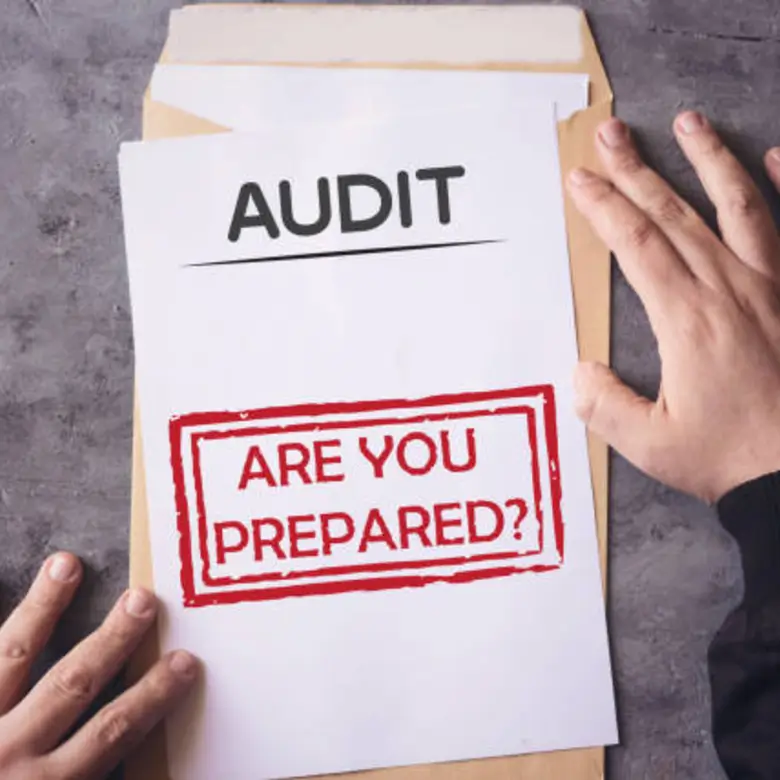Are You Truly Audit-Ready?
A statutory audit is a obligatory, annual review of a company’s finances, conducted by a licensed, ICAN-certified auditor to ensure accuracy, compliance, and accountability in financial reporting. Every limited liability company, public enterprise, and regulated institution is subject to statutory audits by law.
Yet, many organizations are caught off guard, exposing themselves to regulatory penalties, reputation damage, and financial disruptions.
This blog delivers a comprehensive roadmap for any business seeking to excel in statutory audit preparation, mitigate risks, and maintain full regulatory compliance.
In This Guide, You will Learn
- The importance of statutory audit preparation
- Common triggers and focus areas in statutory audits
- What statutory auditors uate
- The role of internal controls in statutory audit readiness
- Why expert support is essential
- A step-by-step checklist to prepare today
Why Statutory Audit Preparation Matters
In Nigeria (and globally), a statutory audit is a legal requirement for certain businesses. Preparing thoroughly is not optional ,it is mandatory if you meet certain criteria.
Here is the breakdown
Businesses That Are Required to Undergo Statutory Audits
- All Public Limited Companies (PLCs)
- Private Limited Companies (Ltd) with
- Annual turnover exceeding ₦120 million
- Net assets exceeding ₦60 million
- Banks and Financial Institutions (regulated by CBN)
- Insurance Companies (regulated by NAICOM)
- Pension Fund Administrators (regulated by PENCOM)
- Companies with foreign ownership
- Government parastatals and public corporations
- Charities and NGOs receiving significant external funding
Businesses That May Not Require Statutory Audits
- Small companies with
- Annual turnover of ₦120 million or less
- Net assets not exceeding ₦60 million
- No foreign participation
- No government ownership
However, even if not legally mandated, voluntary audits can still add credibility and uncover internal risks.
Even small companies are encourage to prepare statutory audits, this will help with basic financial records for tax and operational compliance!
Consequences of Ignoring Statutory Audit Requirements
- Refusal to file audited financials attracts penalties from CAC and FIRS
- Risk of deregistration or loss of operating licenses
- Difficulty securing bank loans, grants, or partnerships
- Reputational harm with investors and stakeholders
Statutory Audit Red Flags
Even companies that routinely undergo statutory audits may get extra scrutiny if
- Financial inconsistencies are spotted in filings
- Regulatory returns are delayed or inaccurate
- Shareholder disputes or internal whistleblowers arise
- Tax underpayments or PAYE irregularities are noticed
- Changes in directors or ownership aren’t properly recorded
What Auditors Will Review

Understanding audit scope helps you prepare documentation in advance. Auditors focus on five major areas
1. Financial Statements
Auditors assess whether your financial statements present a true and fair view of your company’s financial position, as required by International Financial Reporting Standards (IFRS) or other applicable frameworks
Key Focus Areas
- Assets and Liabilities: Are they accurately recorded and properly classified? Are there supporting documents (e.g., title deeds for property, contracts for liabilities)?
- Revenue Recognition: Is income reported in the correct accounting period? Are there any signs of premature revenue recognition to inflate profits?
- Expense Classification: Are costs properly allocated (e.g., direct costs, administrative expenses) and matched to the correct reporting period?
- Disclosure Notes: Are necessary financial disclosures provided transparently (e.g., contingent liabilities, related party transactions)?
2.Tax Compliance
Ensuring tax compliance is a top priority for auditors, as governments rely heavily on corporate tax contributions. Key Focus Areas
- Pay As You Earn – (PAYE)
- Value Added Tax – (VAT)
- Withholding Tax – (WHT)
- Company Income Tax – (CIT)
- Tax Computation
3. Governance and Corporate Structure
Sound corporate governance is fundamental to statutory compliance. Auditors examine how effectively your leadership manages fiduciary duties. Key Focus Areas
- Annual General Meeting ( AGM) Minutes
- Board Resolutions
- Changes in Shareholders or Directors
- Governance Policies
- Annual Returns
4. Regulatory Compliance
Beyond general accounting, auditors focus on whether you meet industry specific regulatory requirements tied to your sector. Key Focus Areas
- Sector Specific Licensing
- Insurance companies: Must comply with NAICOM licensing standards
- Banks and financial institutions: Must meet Central Bank of Nigeria (CBN) regulations.
- Pension Fund Administrators: Must comply with PENCOM requirements.
- CAC Filings: Annual returns must be filed with CAC, reflecting accurate company details and financial standing.
- Other Certifications: Are sectoral permits (e.g., SON certification, NAFDAC registration) current?
5. Internal Controls
Auditors assess your internal controls to determine if your company actively prevents errors, fraud, and unauthorized activities. Key Focus Areas:
- Fraud Prevention Systems
- Segregation of Duties
- Proper Authorization Processes
- Audit trails and approval workflows
Statutory Audits Pitfalls
Statutory audits demand precision, consistency, and compliance across all financial and governance processes. Yet, many businesses inadvertently set themselves up for failure by neglecting key areas. Understanding these pitfalls can help you proactively strengthen your audit readiness.
Here are the most common reasons companies fail statutory audits
1. Incomplete or Late Financial Reports
One of the first red flags for auditors is missing, inaccurate, or delayed financial statements. Companies are required to prepare and present
- Profit & Loss Accounts
- Balance Sheets
- Cash Flow Statements
- Notes to Financial Statements
Failure to submit these reports on time to the CAC, FIRS, or other regulators violates CAMA regulations and suggests potential operational mismanagement.
2. Improper Recording of Revenue or Expenses
Accurate accounting is the heart of every statutory audit. Common accounting mistakes include
- Recognizing revenue before it is actually earned (“early revenue recognition”)
- Omitting accrued expenses
- Misclassifying operational versus capital expenses
- Underreporting taxable income
Auditors check if accounting principles (IFRS, GAAP) have been applied correctly. Discrepancies not only impact financial health perceptions but also expose companies to tax evasion penalties.
3. Lack of AGM Records or Board Documentation
Corporate governance is a core pillar of statutory audits. Auditors require
- Properly documented minutes of Board Meetings
- Resolutions passed during AGMs
- Changes in directorships or shareholding documented and filed
Failure to maintain and submit these records signals poor governance structures, increasing audit scrutiny and regulatory penalties.
4. Unremitted Taxes or Pension Contributions
Taxes and statutory remittances are highly sensitive areas in every audit. Common issues include
- Failure to remit PAYE deductions to state tax authorities
- Non-payment of VAT, WHT, and CIT
- Unremitted contributions to NSITF, NHF, PENCOM pension funds
- Discrepancies between payroll records and remittance evidence
Tax default can lead to regulatory sanctions, garnishment of bank accounts, and reputational risk.
5. Absence of Formal Internal Controls and Approval Workflows
Statutory auditors expect companies to have
- Segregation of duties among finance staff (i.e., the person who authorizes payments is not the same as the person who prepares them)
- Documented approval processes for expenses, investments, and payments
- Clear audit trails showing financial activities and approvals
Without robust internal controls, companies risk fraud, mismanagement, and audit failures.
The Role of Expert Audit Assistance
Trying to handle a regulatory audit internally, especially without experience, can be overwhelming. Expert support helps businesses
Professional audit support ensures a systematic, proactive, and compliant approach to audits, providing many critical advantages
1. Internal Pre-Audit Reviews
Audit experts simulate the statutory audit before external auditors arrive. They
- Review all financial statements
- Check reconciliations
- Identify gaps in accounting treatments
- Evaluate if tax filings match financial reports
- Assess corporate governance records
A pre-audit allows your company to correct errors early and present a strong, confident case during the real audit.
2. Error Correction Across Financials and Filings
An external eye spots inconsistencies you may miss, such as
- Wrong depreciation treatments
- Misclassified expenses
- Missing tax deduct
- Unaligned revenue recognition
Errors are corrected proactively, protecting your company from penalties or forced financial restatements.
3. Proper Compilation of Corporate and Tax Documentation
Audit professionals
- Organize Board and AGM minutes
- Prepare clean, referenced financial records
- Cross-match tax certificates (TCCs) with reported figures
- Archive statutory documents for easy auditor access
This documentation process saves weeks of scrambling during an audit.
4. Staff Readiness Training for Audit Engagements
Auditors often interview finance managers, HR heads, or compliance officers.
Unprepared staff can unintentionally give incorrect answers that trigger further investigations.
Audit experts coach your team on
- How to present records professionally
- How to respond to auditor questions
- What information can and cannot be disclosed
Proper staff training can make or break your audit.
Your Statutory Audit Preparation Checklist

Here is how to begin your preparation today
| Step | Action |
| Review all financial statements for accuracy | Balance Sheets, Income Statements, Cash Flows |
| Reconcile PAYE, VAT, CIT, and WHT payments | Cross-check against financial records |
| Update CAC annual returns and board resolutions | File required documentation promptly |
| Maintain records of shareholder changes | Keep your ownership structure updated |
| Strengthen internal controls | Dual approvals, audit trails, segregation of duties |
| Store AGM and board meeting minutes properly | Complete records available on demand |
| Conduct a mock audit | Hire professionals to simulate real audit scenarios |
Need An Audit?
Whether you are a PLC, a medium-sized Ltd company, or a regulated business, statutory audit preparation is mission-critical.
That is where Wells Accounting & Tax Services comes in.
We specialize in
- Statutory audit readiness
- Financial reporting assistance
- Tax and regulatory compliance reviews
- Corporate governance support
- End-to-end documentation for audit success
Call us today at +234 081-7801-1853
Email: info@wellsaccountingtax.com
Visit: www.wellsaccountingta.com
Let us help you make compliance a strength not a source of stress.







No comment